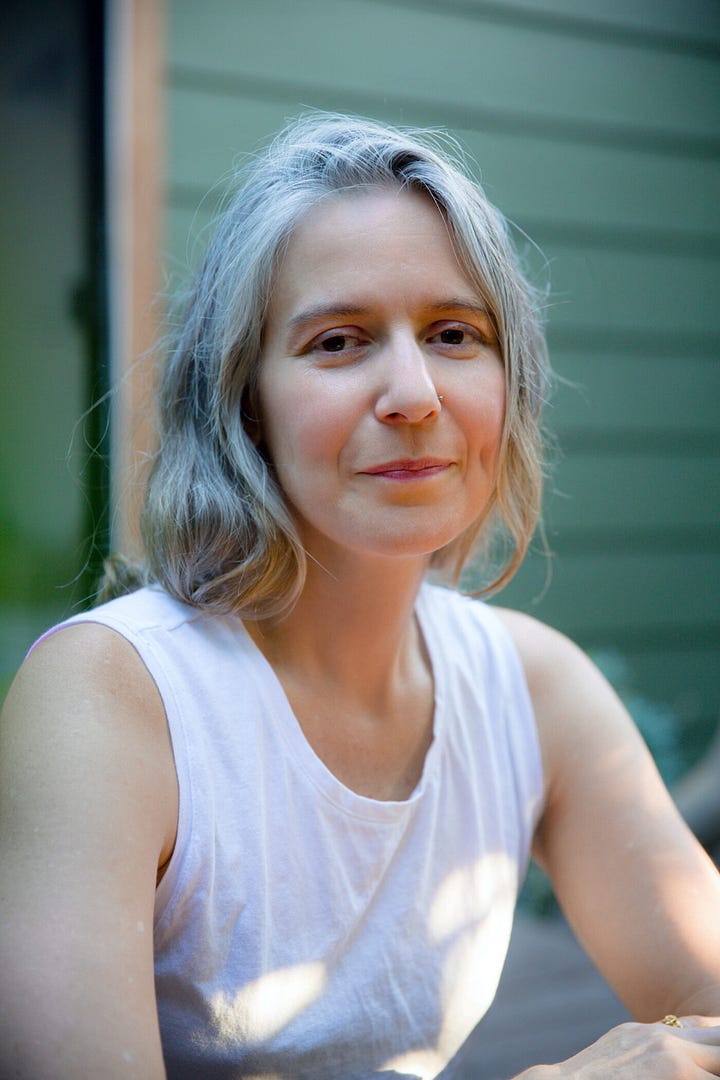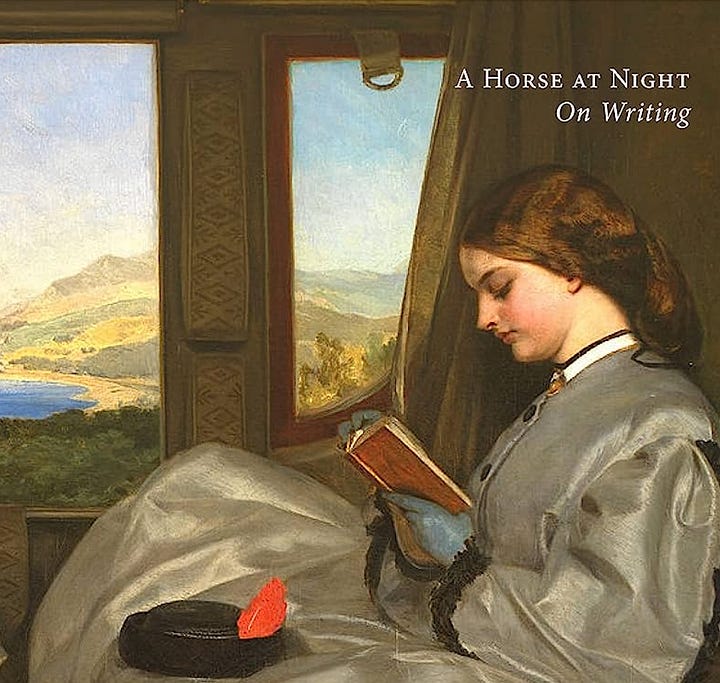

The first thing I wanted to ask you about was about your title A Horse at Night. How did it come about as the perfect title for your meditations? It’s so evocative. I immediately thought of Djuna Barnes’ lesser known A Night Among the Horses, but also Angela Carter’s Nights at the Circus.
Thank you again for wanting to have this conversation with me. I loved your post on night, and am happy to be sitting in the dark with you, kind of like Borges’ “A Dialog About a Dialog.”
I have to be honest and say that titles have become excruciatingly hard for me, so it took a while to get to this one, but I find the night, and darkness, relaxing, and I wanted to evoke the feeling of the night in this title. I also wanted the title to be an image, but one the reader can barely see. I wanted it to conjure both stillness and movement. I wanted an animal to appear in it.
I love both titles you mention, and also Clarice Lispector’s The Apple in the Dark. I was inspired by that one.
On the first page of A Horse at Night, you declare your project and write:
I wrote about reading fiction, and about writing it.
I love this sentence so much. It makes me think of one of my favorite intellectual topics: the act of reading. How curiously oddly under-thought it is. I sometimes think of all the great or average novels that don’t have characters alone with books. I tell myself, Oh there’s lots of things bourgeois or experimental fiction never focus on. Eating, shitting, the awkwardness and little failures in sex, etc. But that doesn’t quite satisfy as an answer.
I’ve always been drawn to experience itself—to transcendent experiences, aesthetic experiences, surreal or strange experiences, to what we might call the simple experiences of daily life, relational experiences, and to the experiences of reading and writing. For a while I co-taught a class on creativity, and in my section of the course, this is what I focused on. One of the units looked at reading as a creative act, and in it I asked the students to read Jorge Luis Borges’ “A Dialogue About a Dialogue,” jotting down the sensations, impressions, and feelings that came up for them while reading, and to note which words or images or passages produced those sensations. It was hard for the students to leave meaning behind, to not try to summarize the story, or analyze it. I love that we can have an experience when we read. And as a writer, I like to think about what kinds of experiences I might be creating for a reader. I agree that the act of reading is oddly underthought and talked about. The focus is so often elsewhere.

